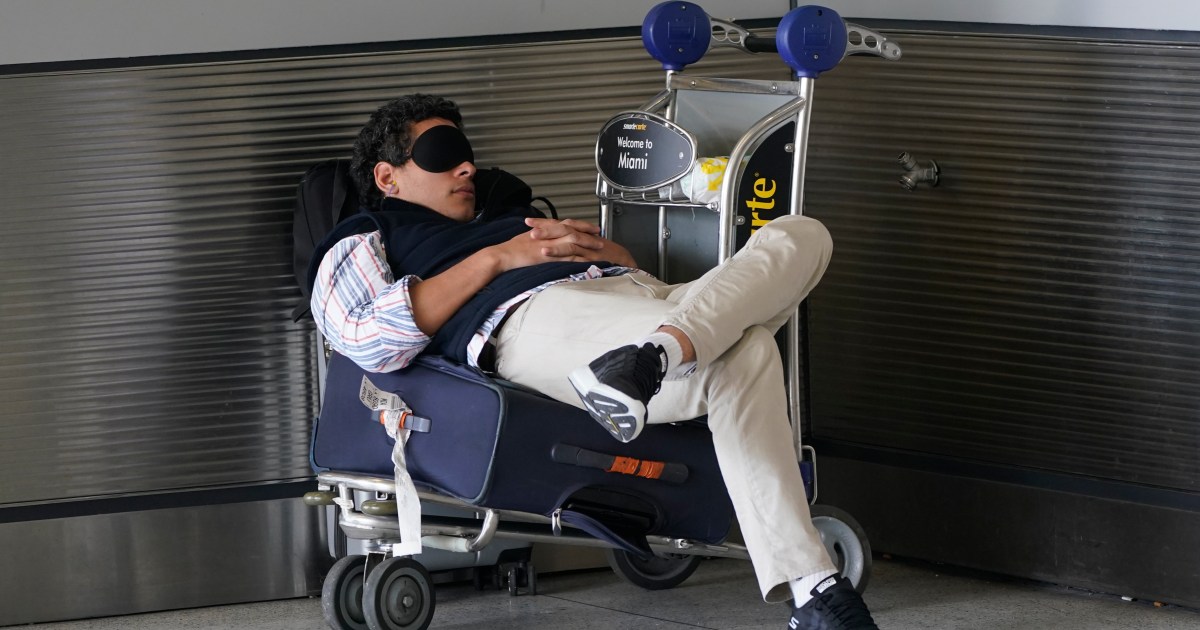MORE INFORMATION
- Ada Castells: "Being a mother is the most difficult job and the most important thing is to do well"
Telework and care confined without forgetting the partner
Getting a restful sleep depends on many circumstances. Our night rest can be altered by any variation in our usual routines, such as a change of mattress, schedule or amount of daytime activity. Therefore, it is not surprising that the current circumstance of coronavirus quarantine, which causes changes in activity habits and rhythm during the day, alters our night sleep. But, despite the circumstances, it is advisable to ensure that children maintain adequate and healthy guidelines at bedtime, since night sleep is the time when we replenish our energy. “The rest of the babies until 6 months of age, probably, will be the one that suffers the least, because their daytime activity will change very little. Sleep in infants is very fragmented, with multiple awakenings that obey the physiological function of feeding. Children between 12 months and six years of age who are used to having a more intense daytime activity, such as going to school or going out to play and run in the park, can present alterations in their sleep pattern, as in the case that it is difficult for them to fall asleep and that they wake up several times at night ”, explains Erika Jiménez, neuropaediatrician at the Rey Juan Carlos Móstoles Hospital in Madrid.
During domestic confinement, there are two factors that influence the alteration of the night rest of children and adolescents. “On the one hand, the decrease in activity during the day, causing children to arrive less tired at night. The other issue is that being confined at home means that the child is less exposed to daylight, which activates the onset of sleep thanks to the secretion of melatonin by the hypothalamus. In the case of children from the age of seven and adolescents, they are probably those who present the most alterations in their sleep pattern, because it is necessary to add the use of screens, such as television, tablets or mobiles, which delay the time of going to sleep. Using these devices during the hours before bedtime increases children's alertness, because blue light from these devices can inhibit sleep-inducing melatonin secretion. This produces a cycle that is difficult to break because they fall asleep and get up later and the same thing happens again the following night, "explains Erika Jiménez, who recommends several guidelines for children to have a restful night's sleep during quarantine, between them:
Feeding during confinement and children's sleep
An adapted and adequate diet can promote a restful rest in children during the coronavirus quarantine. Keep in mind that “in most cases, it is not giving us the sun. For this reason, it will be especially important that we include foods rich in vitamin D, such as milk, yogurts, cheese, eggs or blue fish, and foods rich in calcium, such as nuts, legumes or whole grains, "recommends Myriam Herrero Álvarez, specialist in the digestive system and pediatric nutrition at the Rey Juan Carlos Móstoles University Hospital in Madrid.
Maintaining, as far as possible, the pre-quarantine children's eating routines means that “our biological clock does not get too confused. It also helps to have a bright breakfast and keep it up during the day so that our biorhythms are activated by daylight and turn off when the sun goes down. Also, it is advisable to have a light dinner and give a space of about two hours at least for digestion to take place before going to sleep, "adds the pediatric nutritionist.
Foods that help children and adults to rest at night better are those that “facilitate the induction of sleep, such as those that are rich in melatonin, tryptophan and serotonin, ideal to include at dinner. The foods that contain these substances are, among others, white meats, such as chicken, fish and also eggs, dairy products and fruits, such as bananas or cherries, as well as avocados, spinach, tomato, broccoli , carrots and nuts, as well as whole grains, oats and legumes. Therefore, the classic glass of grandmother's milk before going to sleep can be a good remedy, especially if you take it in dim light, pajamas on and without sugary cocoa, since both the chocolate for its caffeine content, like sugar they activate us ”, concludes Myriam Herrero.
You can follow De mamas & de papas on Facebook, Twitter or subscribe here to the Newsletter.










/cloudfront-eu-central-1.images.arcpublishing.com/prisa/KMEYMJKESBAZBE4MRBAM4TGHIQ.jpg)


